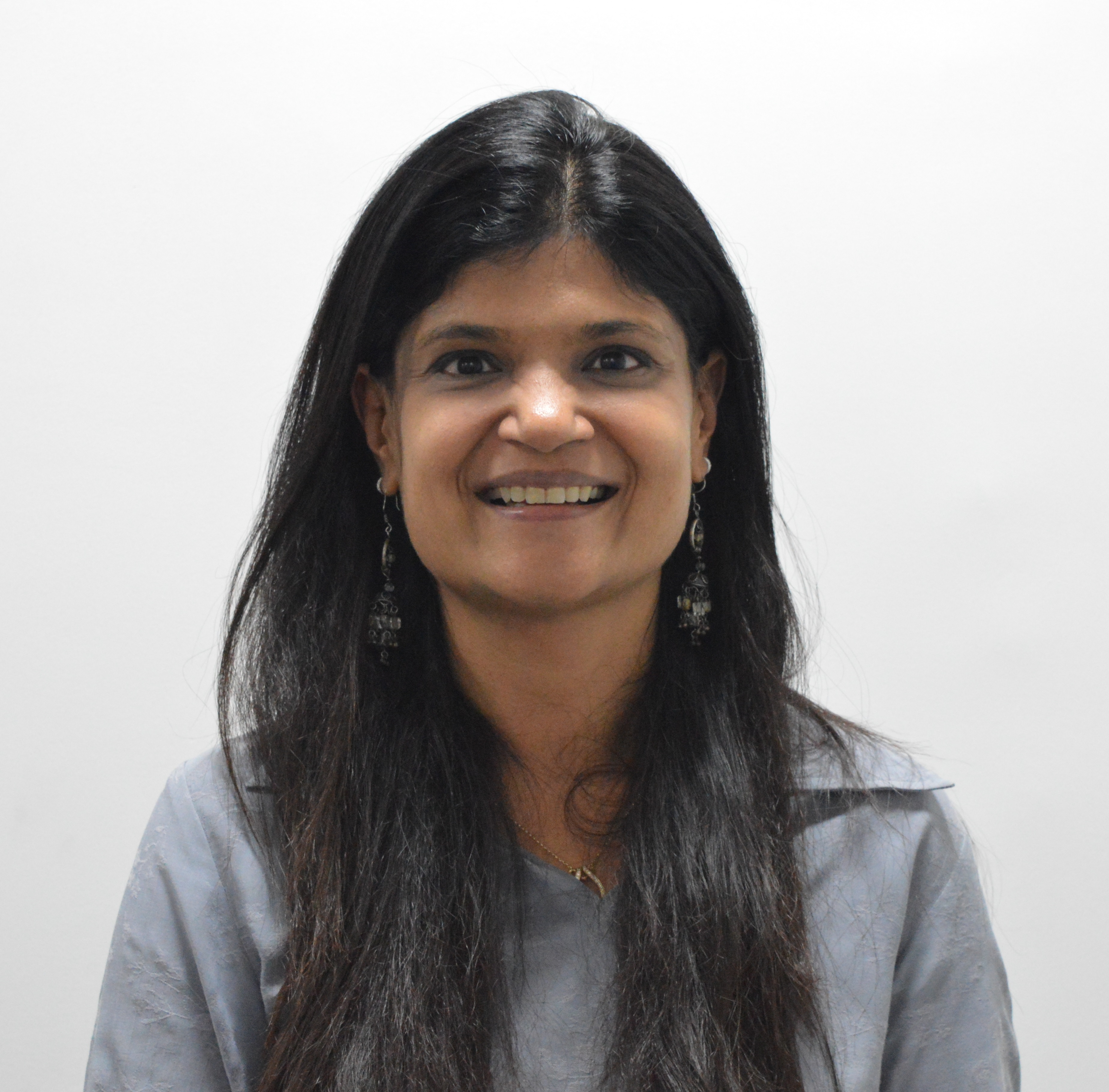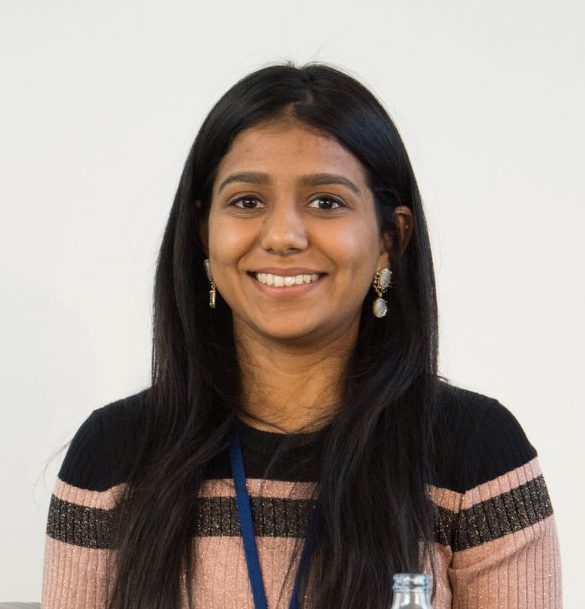An undertaking to put India on the moon is not an easy one, and that is what Team Indus aspires to do. They were one of the five finalists for the Google Lunar X Prize and are currently building the world’s first private mission to the moon. At 40, Sheelika Ravishankar, Jedi Master, Team Indus, with no background in science, decided to take up this challenge, which is her biggest source of satisfaction and stress. We got into a conversation with her to find out what keeps her going to achieve the extraordinary and the detriments and benefits of technology in the 21st century.

Thrive Global India: You have said that you envision a Futuristic India. How would you describe the workplace of the future? And what do you think is the biggest challenge to building it here in India?
Sheelika Ravishankar: Futuristic India for me is young entrepreneurs building new technology in a new way as we go forward. If you look at it, the next generation will communicate through AR/VR, that’s going to be the main source of communicating.
Workplaces will increasingly be more online, more offsite, advancement in communication technology will lead to a ‘smaller world’, enabling all parties to communicate across the world, irrespective of their location, with ease.
If you look at the world around us, you find more and more young people getting into entrepreneurial life, people are decreasingly chasing a big corporate job and money. The passion and career drive young people have could take India into being one of the fastest growing countries in the world, if only we have the policies to support it. There needs to be a very strong change in the way we encourage the entrepreneurial spirit and build policies around it.
TGI: What are some of the tools and techniques that you use, in the face of setbacks, to keep your team motivated to deliver a successful mission?
SR: There is an inspirational side of doing something great like aiming for the moon. The reasons for people joining Team Indus have not been to make a career move or to climb up the ladder, but their passion to do something life changing is their sole motivation. That is a huge binding factor. The mission we serve is so much bigger than all of us put together that it drives people to be a part of it.
Another thing we have done to help and enable that is by making the culture in the organisation that of meritocracy and innovative thought, where we constantly push each other to think big and different. [We believe in] Meritocracy in terms of giving everyone, from fresher to an expert, the freedom to present and challenge each other’s ideas. We are also very flat, as non-hierarchical as possible. An open work environment creates a sense of belonging.
We have a great bunch of people, and the fact that we are learning organisations really helps.
Another thing that really helps in our culture, we expect you to fail. Often people have their ideas shot down, after putting in months of research, and take it as a learning and move on to the next idea. That has truly helped us.
TGI: What is the one thing about our relationship with technology which really terrifies you about the future? What are you doing to mitigate this?
SR: There is a thin line between tech being an enabler and getting too dependent on it. Increasingly I see, the next generation not having to remember anything, or learn anything, because everything is a click away.
That scares me because learning goes down and the exercising of the brain goes down. I am reminded of the quote: “How is that we have so much information but know so little?” Technology is making us too dependent and much less self-reliant on our brains and ability to think is going down.
I think the challenge we are facing today is that there is no private life. The next generation lives their life on social media, and it may become very difficult to distinguish work and life balance.
Also, one of the biggest challenge technology poses is the pressure to perform, because everything one does is out in the open for the world to evaluate. There is no balance because technology brings everything home for you.
TGI: What is your personal relationship with the phone?
SR: I think we all go through stages where the relationship becomes unhealthy and obsessive. I consciously make it a point to not look at my phone at night. I communicate with people in different time zones, and I tried to read random e-mails at 2 or 3 am and my sleep goes away. I am making it a habit to not check e-mails after a certain time, which is working well. Getting a good night’s sleep is very important.
Recently, I was on a holiday and I dropped my phone in the ocean, and since I was in a different country, it took me 12 days before I had a phone. I had withdrawal symptoms. I was hyperventilating, clueless about what to do.
Due to our phones, we have lost the ability to sit idle. Sitting idle is important for your brain to be creative. Now we are so addicted that there has to be some action or activity, and if you have nothing to do, you pick your phone to watch videos or read—there is a constant need to do something, and therefore brains are much more tired and people tend to burn out much faster.
TGI: What’s the first thing you do when you get out of bed?
SR: I check my phone. I pretend to see what time it is but I do look at everything else also.
TGI: Which has been the most instrumental challenge that has shaped your life?
SR: Both professionally and personally, joining Team Indus, and doing what I do here. I do not like science. For me, joining Team Indus was completely stepping out of my comfort zone, it was learning physics, science from scratch. I joined Team Indus when I was 40, and at 40 I learned something completely new. Being able to speak coherently and intelligently with people on what is termed as rocket science was a challenge. It was thrown to me as a challenge, and I said sure, I think I can do it.
TGI: When was the last time you felt burned out? How do you cope with it?
SR: Every day. It’s a highly stressful job, one where we are racing against, and have very high expectations to meet. We have limited resources, and therefore everybody is working four times our capacity. There is, however, a huge sense of satisfaction at the end of the day.
I try to find ‘me time’, by going for a one-hour walk every day, or taking time to read a book. Spending time with kids also is a huge stress-buster.
TGI: What’s your favourite well-being tip?
SR: Ninety per cent of all our issues and ailments arise from our inability to deal with stress. Some of the fittest people, who don’t smoke, drink or exercise regularly are still dropping dead on the treadmill. I genuinely believe it’s due to our inability to deal with stress. I feel if we can live in the present and not worry about the things which we can’t control. In times of stress, I take a step back and remind myself, ‘Hey, I’m doing the best I can. It’s alright.’ That makes a lot of difference.
TGI: Share a quote which you find motivating.
SR: “We began as wanders and we are wanderers still.”It reminds me of how we need to keep exploring to grow, to learn new things, to and keep going.
Want to share your story of how you thrive? Write to us at [email protected]


